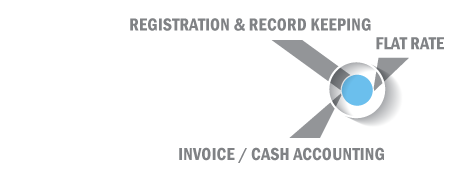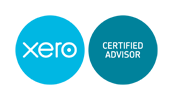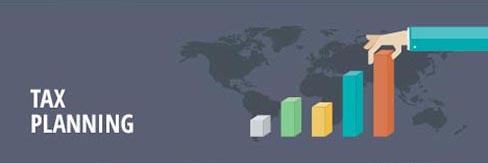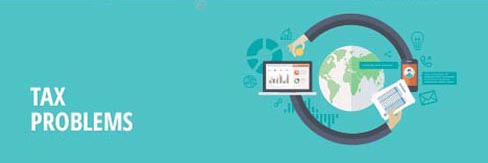
01332 202660

v
Services
.png?crc=484381513)
61 Friar Gate Derby DE1 1DJ

How we can help
From April 2019 businesses with turnover above the VAT threshold will be required to keep accounting records digitally and file their VAT returns to HMRC through MTD software. If you are unsure if your business will need to comply by April 2019 we can advise you.
Are you currently using accounting software? Under MTD, businesses will be required to keep digital accounting records. We can assist you in ensuring that your existing software is MTD compatible and advise you on the most appropriate online applications for your business needs.
Spreadsheets are accepted as digital records for MTD purposes. You may wish to consider adopting accounting software instead but if you continue to use spreadsheets we can upload the data using our MTD software and report your results quarterly to HMRC.
- Digital record keeping requirements
- Digital record keeping requirements in particular situations
Who's in?
The MTD for VAT requirements will apply to VAT registered businesses and organisations with turnover above the VAT threshold of £85,000. This includes unincorporated businesses, partnerships, companies, LLPs, trusts, non-UK businesses registered for UK VAT and charities. VAT registered businesses with turnover below the VAT threshold can opt in to MTD and file their VAT



returns using MTD compatible software but there is no obligation to do so.
A six-month deferral will apply to around 40,000 of businesses who fall into one of the following categories:
- trusts
- ‘not for profit’ organisations that are not companies (this includes some charities)
- VAT divisions
- VAT groups (the deferral applies to the group registration only and not to any group companies that are not covered by the group registration)
- public sector entities that are required to provide additional information alongside their VAT return (such as Government departments and NHS Trusts)
- local authorities and public corporations
- traders based overseas
- those required to make payments on account
- annual accounting scheme users
These businesses will be mandated to use MTD from October 2019. HMRC has sent an individual letter to each deferred business to advise them that their start date is the beginning of the first VAT accounting period starting on or after 1 October 2019 rather than 1 April 2019. These letters include formal legal notification of the deferral of the start date and any business that wishes the deferral to apply must ensure that they receive the letter and should retain it carefully. A deferred business that does not receive a letter should contact the VAT helpline.
Sign
up
Newsletter


Calculating taxable turnover
When working out taxable turnover you should:
- include standard rated, reduced rated and zero-rated supplies; and
- exclude outside the scope and exempt supplies.
The £85,000 threshold for complying with the MTD for VAT requirements also applies to non-established taxable persons (NETPs) even though they are required to register once they have taxable turnover of £1.
The period to be considered when determining whether taxable income exceeds the £85,000 for MTD for VAT purposes year to the end of any month (ie, a rolling 12 months).When the threshold is exceeded for the first time the business must comply with MTD for VAT from the beginning of its next VAT accounting period. When MTD for VAT begins the relevant periods to consider for businesses that file quarterly are:
VAT stagger group Check taxable turnover for First MTD VAT return Mar/Jun/Sep/Dec Year ended 31 March 2019 Q/ended 30 June 2019 Apr/Jul/Oct/Jan Year ended 30 April 2019 Q/ended 31 July 2019 May/Aug/Nov/Feb Year ended 31 May 2019 Q/ended 31 August 2019
Voluntarily registered businesses that have not opted into MTD for VAT will need to continue to monitor their turnover to establish when they need to start complying with the MTD for VAT requirements. Businesses that newly register for VAT (compulsorily) will need to consider how they will comply with the MTD for VAT requirements and will have very limited time in which to comply.
Once a business is required to comply with the MTD for VAT requirements, the obligations continue, even if the taxable turnover of the business subsequently drops below the VAT threshold.
Eventually, MTD for VAT may be extended to all VAT registered businesses, but this will not happen before April 2020 at the earliest.
When does it start?
Businesses and organisations within scope will have to keep digital records and submit VAT returns using functional compatible software from the start of their first VAT return period beginning on or after 1 April 2019, or 1 October 2019 if they are covered by the 6-month deferral mentioned above. Annual accounting and special VAT accounting periods will continue to be available.
The relevant dates for businesses with an April 2019 start date that file quarterly are:
First mandatory MTD Digital accounting Deadline for filing for VAT return records must be first mandatory MTD period kept from: for VAT return* 1 April 2019 - 30 June 2019 1 April 2019 7 August 2019 1 May 2019 – 31 July 2019 1 May 2019 7 September 2019 1 June 2019 – 31 August 2019 1 June 2019 7 October 2019 *For payment electronically, otherwise 31 July, 31 August and 30 September
Exemptions
An exemption for the digitally excluded is included in the regulations and mirrors the current exemptions from online filing for VAT. The exemptions cover those that that do not use computers for religious reasons and those that are unable to comply because of age, disability or location (or for any another reason).
Existing exemptions from online filing for VAT will be carried over automatically to MTD for VAT. Those that are not currently exempt from VAT online filing may find it difficult to persuade HMRC that the exemption should apply. Difficult cases will arise, particularly where an individual has some basic digital skills such as being able to send emails, but would not be able to cope with accounting software or a spreadsheet. There is no specific age at which the exemption applies; each case will be taken on its merits. Location covers those who cannot obtain access to broadband because of where they are located. The exemption will not apply to those who could sign up for broadband but have not done so.
HMRC is expected to issue further guidance on applying for exemption. The current process is to phone the VAT helpline or make a written request, but applications for exemption from MTD for VAT cannot be made until further guidance is published and HMRC’s internal processes are in place.
Businesses in insolvency procedures are exempt from the MTD for VAT requirements. The current paper-based processes are expected to continue, for both pre and post appointment returns. This exemption covers the following situations:
- when a bankruptcy order or winding-up order or award of sequestration is made or an administrator is appointed in relation to that person;
- when that person is put into administrative receivership;
- when that person, being a corporation, passes a resolution for voluntary winding up;
- when any voluntary arrangement approved in accordance with Part I or VIII of the Insolvency Act 1986, or Part II or Chapter II of Part VIII of the Insolvency (Northern Ireland) Order 1989, comes into force in relation to that person;
- when a deed of arrangement registered in accordance with . . . Chapter I of Part VIII of that Order of 1989 takes effect in relation to that person; or
- when that person's estate becomes vested in any other person as that person's trustee under a trust deed.
Software and Digital Links
HMRC is working closely with software providers to ensure a range of suitable products will be available at a variety of price points. It is unlikely that a free software product with MTD for VAT functionality will become available.
Digital records can be maintained in more than one program or software product. The use of spreadsheets, either to record individual transactions or as part of a suite of software and spreadsheets is permitted. An existing spreadsheet alone is not a free way to comply with the MTD for VAT requirements as it will not have the functionality to file the return. Spreadsheets will need to be used in combination with an MTD compatible software product so that data can be sent to and received from HMRC systems.
Where records are maintained in more than one program or product there must be digital links between each of the software products/spreadsheets. Information cannot be transferred manually between products. Digital links have been defined and the following actions are included:
- emailing a spreadsheet containing digital records to a tax agent so that the agent can import the data into their software to carry out a calculation (for instance, a Partial Exemption calculation);
- transferring a set of digital records onto a portable device (for example, a pen drive, memory stick, flash drive) and physically giving this to an agent to import that data into their software;
- XML, CSV import and export, and download and upload of files;
- automated data transfer;
- API transfer; or
- linked cells within or between spreadsheets. The transfer of information by the use of copy and paste or cut and paste does not meet the requirement for a digital link
Section 7 of the MTD for VAT notice includes a number of examples that illustrate the extent to which digital links are required.
For the first year, HMRC will not enforce the requirement to have digital links in place. This is to allow some more time for links between legacy systems to be made digital. During this period manual transfer of data between different systems is permitted but the final transfer of data into the MTD compliant software product from which the return is filed must be digital.
MTD for VAT functional compatible software must be able to:
- Keep records in a digital form.
- Preserve records in a digital form.
- Create a VAT return from the digital records.
- Provide HMRC with VAT returns and voluntary information by using the API (application program interface) platform.
- Receive information from HMRC using the API platform. This will include messages about a requirement to file and confirmation of successful filing and will allow HMRC to send ‘nudge’ messages to the business/agent.
MTD for VAT pilot
The MTD for VAT pilot started in April 2018 and moved to public beta in October 2018. In January 2019 the pilot was opened up to all businesses that are mandated to comply with MTD for VAT from April 2019 and to VAT group registrations.
Any business that meets the eligibility criteria and has acquired MTD for VAT compliant software can now join the pilot.
Certain businesses and organisations still can’t join the pilot; all of these ineligible businesses are mandated from October 2019 rather than April 2019 These are any which:
- are part of a VAT Division
- are based overseas
- are a trust
- are a not for profit organisation that is not set up as a company
- submit annual returns
- make VAT payments on account
Note that businesses that pay their VAT by direct debit cannot sign up during the 15 working days leading up to the submission date or in the 5 working days immediately after it.
Businesses can sign up to the pilot from the gov.uk page: Use software to submit your VAT returns. Agents can sign their clients up to the pilot from the gov.uk page: Agents: use software to submit VAT returns. Businesses should not be signed up until they are ready to file future VAT returns using functional compatible software.
Digital record keeping requirements
The requirement to keep digital records does not mean that businesses will have to scan and store invoices and receipts digitally. Businesses can continue to keep documents in paper form if they prefer but each individual transaction (not summaries) will need to be recorded and stored digitally. HMRC would like to encourage records to be kept in as near to real time as possible, but it will still be possible to create the digital records at quarterly intervals, using a bookkeeper or other agent if required, provided the information is entered into a digital record keeping system at that stage.
The regulations require the following records to be kept digitally:
Designatory data:
- The name of the business or organisation.
- The address of the principle place of business.
- The VAT registration number.
- Details of any VAT accounting schemes used.
For supplies made:
- The time of supply.
- The value of the supply.
- The rate of VAT charged.
If multiple supplies subject to the same rate of VAT are made at the same time these do not have to be recorded separately. You can record the total value of supplies on each invoice that has the same time of supply and rate of VAT charged.
The corollary applies: if an invoice has supplies at different rates of VAT (eg, adult’s and children’s shoes) there must be a separate digital record for each rate of VAT charged. You must split the total value of supplies on the invoice and make a separate entry in the digital records for each rate of VAT charged. This is needed to meet the requirement to have a record of outputs value for the period split between standard rate, reduced rate, zero rate, exempt and outside the scope outputs. There is a relaxation for mixed rate supplies at a single inclusive price (eg, meal deals).
For supplies received:
- The time of supply.
- The value of the supply including any VAT that is not claimable by the business.
- The amount of input tax to be claimed.
If there is more than one supply on an invoice the business can record the totals from the invoice.
VAT account:
The VAT account is the link - the audit trail - between the business records and the VAT return. The information required to be held in the VAT account must be kept digitally (the regulations refer to this as the “electronic account”), and the information in that electronic account will be used by functional compatible software to calculate and fill in the VAT return.
To show the link between the output tax in the records and the output tax on the return, the business must have a digital record of:
- The output tax it owes on sales.
- The output tax it owes on acquisitions from other EU member states.
- The tax it is required to pay on behalf of its suppliers under the reverse charge procedure.
- The tax that needs to be paid following a correction or error adjustment.
- Any other adjustment required by VAT rules.
To show the link between the input tax in the accounting records and the input tax on the VAT return the business must have a record of:
- The input tax it is entitled to claim from business purchases.
- The input tax allowable on acquisitions from other EU member states.
- The tax that it is entitled to reclaim following a correction or error adjustment.
- Any other necessary adjustment.
Certain records, such as fuel scale charge calculations, partial exemption calculations and capital goods scheme adjustments, are not included in the list of records that must be kept digitally. Such adjustments can be calculated outside the digital records with a journal entry being made for each type of adjustment.
The cash accounting scheme which allows businesses to account for VAT on the basis of payments made and received rather than on invoices continues. Such businesses are, however, still required to record individual supplies made and received and creating digital records from bank statements alone will not satisfy the requirements.
Some software records reverse charge transactions and it is not necessary to have separate entries for the self supply and purchase. If the software does not record reverse charge transactions it will be necessary to record reverse charge transactions twice, once as a supply made and a second time as a supply received.
Records must be kept for six years (or 10 years if the business uses VATMOSS). Digital records will need to be maintained for six years following deregistration, but may be kept in alternative formats rather than in functional compatible software.
Digital record keeping requirements in particular situations
As explained in the previous section, the MTD regulations generally require a digital record of each and every transaction. There are exceptions for:
Retail schemes
Retailers will be able to record gross daily takings (not weekly, monthly or quarterly) rather than each individual transaction. This means that there does not need to be a digital link between tills and the accounting records; recording the daily totals in the digital accounting records meets the requirements. Many businesses are using a retail scheme without understanding that they are doing so.
Flat rate schemes
The flat rate scheme will continue and digital records of supplies received will not be required (unless they relate to capital items which cost more than £2,000 including VAT).
Margin schemes
The additional records required for margin schemes and the calculation of the marginal VAT charged do not need to be kept in digital form. These records must still be maintained in some format.
Records maintained by third parties
The regulations allow HMRC to issues notices to relax the digital record keeping requirements where it would be impossible, impractical or unduly onerous to comply.
The MTD for VAT notice allow supplies made by third party agents to fall outside the digital record keeping requirements until the point at which the agent supplies the information to the business. This allows a summary of supplies made by an agent to be treated as a single invoice to create the digital record. The example given is that of a letting agent and HMRC has confirmed that the relaxation also applies to barristers who can use summaries prepared by their clerk. This relaxation does not apply to records maintained by customers, employees or others such as charity volunteers who are not third party agents. HMRC is expected to issue further guidance to relax the requirements for supplies made in connection with one-off activities run by charity volunteers.
There is a similar relaxation for supplies received by third-party agents and for employee expenses. This relaxation does not apply to records maintained by suppliers so creating digital records from supplier statements is not permitted. There is currently no relaxation for petty cash.
VAT Pages ► VAT Summary ■ VAT Rates & Limits ■ VAT Cash Accounting ■ VAT Flat Rate Scheme ■
Registered office: 61 Friar Gate, Derby, Derbyshire, DE1 1DJ T: 01332 202660
Adrian Mooy & Co is the trading name of Adrian Mooy & Co Ltd. Registered in England No. 05770414









